How to Look After Your Wooden Chopping Board
This website may earn commissions from purchases made through links in this post.
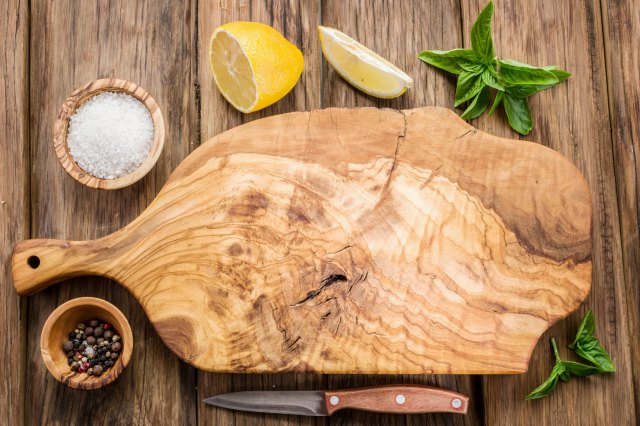
We went to the Farmer’s Market the other Sunday and I just couldn’t pass by these beautiful wooden cutting boards without acquiring one.
Sounds a little like impulse buying, but a wooden cutting board has long been on my wishlist and these were priced just right.
DH was reluctant about the wooden board. You know, the whole bacteria, food poisoning concern.
So I admit that I was a little smug when I stumbled across some research (see links at the end of the article) that found wooden chopping boards are actually healthier than plastic ones.
Here’s what the scientists found.
After inoculating a variety of plastic and wooden cutting boards with bacteria and then leaving them overnight, bacteria were readily recoverable from the plastic boards within minutes while the wooden boards absorbed the bacteria until they were almost completely gone.
“Clean wood blocks usually absorbed the inoculum completely within 3-10 min… If these fluids contained 103-104 CFU of bacteria likely to come from raw meat or poultry, the bacteria generally could not be recovered after entering the wood. If ≥106 CFU were applied, bacteria might be recovered from wood after 12 hours at room temperature and high humidity, but numbers were reduced by at least 98%, and often more than 99.9%.” [source]
In other words, 99.9% of bacteria was unrecoverable and presumed dead. Researchers don’t exactly know why this happens, although it is suspected that bacteria is drawn into the wood through a capillary action and once inside the wood, it no longer reproduces and dies off.
Other studies have found that people who use wooden chopping boards are less than half as likely as average to contract salmonellosis while those using plastic or glass boards were about twice as likely as average to contract it. And the effect of cleaning the board regularly after preparing meat was not statistically significant.
“A good wipe will do fine – and if you forget to wipe the board, you probably won’t be too bad off.” [source]
Wooden cutting board care
I can be fairly slapdash about cleaning in general, but I am particular about cleaning chopping boards and avoiding cross-contamination from raw meat.
Apart from the obvious health issues (no one wants food poisoning), caring for your board properly will help it to last longer.
Here are some tips for caring for a wooden cutting board:
- Wash in hot soapy water (on both sides to avoid warping) and dry thoroughly. Leaving your board wet will encourage splitting.
- To remove stains and smells either sprinkle with salt and rub with a cut lemon or rub with bicarb soda and a damp cloth.
- Regularly oiling your cutting board will help it last longer. Pour a little oil on the board, spread it around and let it soak in a while. Wipe excess oil off before storing. Don’t forget to do both sides. The bloke who sold me my board used grapeseed oil to season it and recommended the same. Many people use olive oil although some argue that regular cooking oil can go rancid. Coconut oil is a good alternative.
- If you want to sanitise your board, you can apply a small amount of bleach mixed with water, leave it sit and then rinse off. Or you can use straight vinegar instead.
Wooden cutting boards are so nice to use – aesthetically pleasing and gentler on knives. And now there’s another reason to choose wooden over plastic – turns out they are healthier for you too.
Studies
- Plastic and Wooden Cutting Boards University of California.
- Cutting Boards of Plastic and Wood Contaminated Experimentally with Bacteria Journal of Food Protection Volume 57 number 1.
- Wood Wins, Plastic Trashed for Cutting Meat. Science News Volume 143 Number 6.

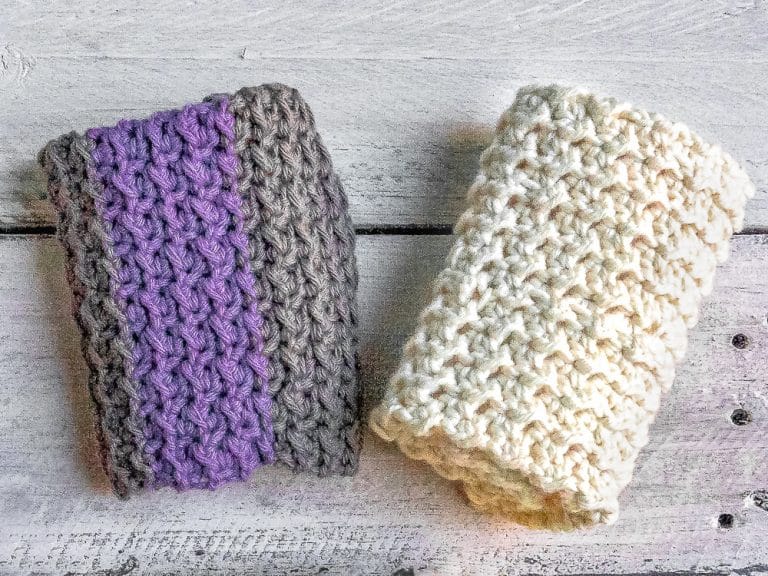
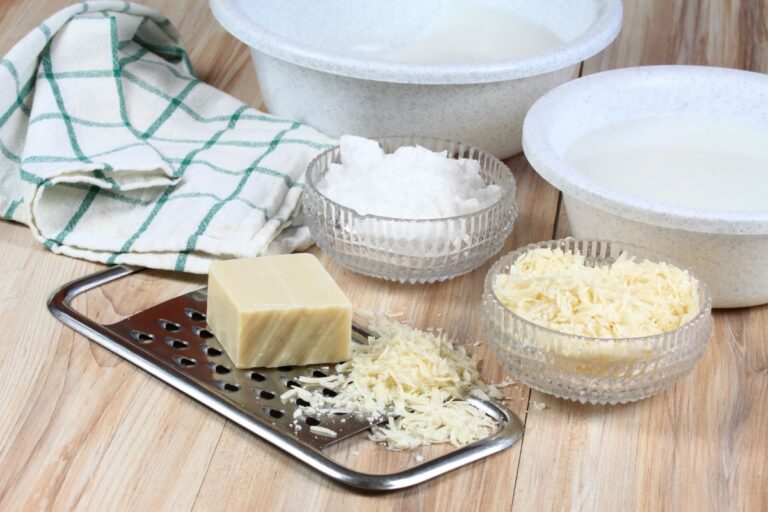


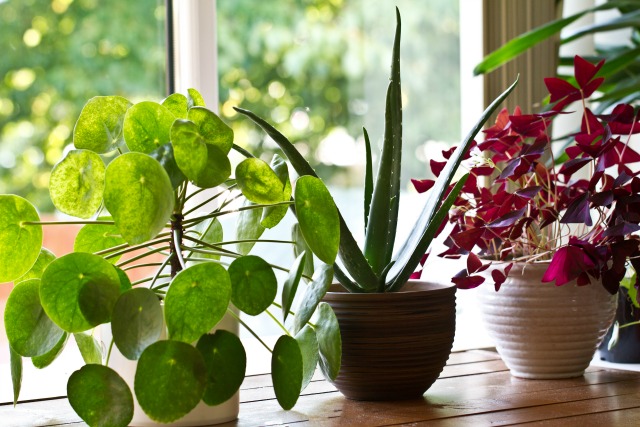
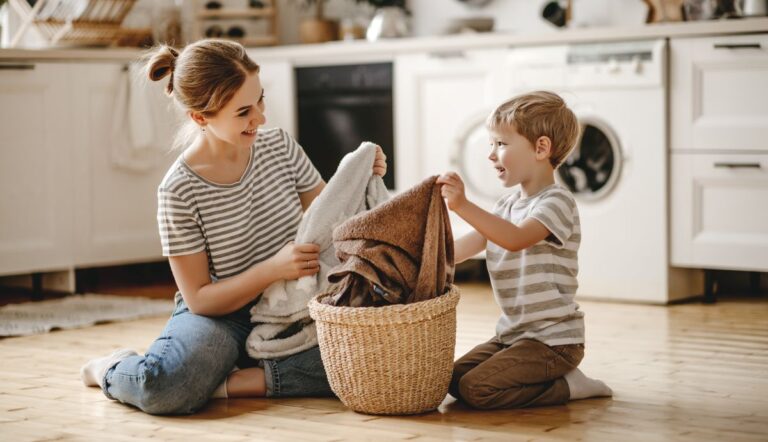
I have always used a wooden cutting board, but at the moment am using a granite one. It was the right price at the market too. It’s big disadvantage is it is dark and if someone (who shall remain nameless) forgets to wipe it over after using it, the next user gets a nasty surprise. It ‘s also very heavy. I’m thinking of going back to my old wooden boards. I have a big one for meat and general use and a small one that I use for just fruit.. The reason why I have one for fruit is, once I got a definite onion flavour on some fruit ( having chopped onions for a meal, before). I had wiped the board over and washed before cutting fruit, but the onion taste persisted. It might have been due to the type of fruit I was cutting. Don’t remember what it was. Anyway, I have been using the same wooden boards for 34 years and no fatalities yet!
34 years is a good stretch for a cutting board!
We have used both, but I am getting rid of the plastic ones as I love wooden boards.
Regarding oil, we got a beautiful big board as a wedding gift over 10 years ago, and only care for it with regular vege5able oil. It is absolutely fine. My grandmother uses the same technique and her boards are so old they’ve nearly worn out!
Enjoy your beautiful board.
Thanks for sharing that! I won’t get ‘special’ oil.
I’ve always worried about wooden spoons for the same reasons (many commercial kitchens ban them). So I guess the same theory goes with our wooden spoons, then? Maybe I will do an occasional soak in vinegar just to be sure. Thanks for this one!
Good question. I use a few wooden spoons – I’ve never really thought about it. Only ‘precaution’ I use is to keep the curry one separate and have an extra one just for cakes – not keen on curry flavoured cakes :).
I’ve only really used wooden boards. One is for meat, the other for garlic + onions and then one for the fruit and veggies. I love them and think they’re much more ‘grippy’ and therefore safer to use.
Oh yes! No chasing the board round the bench. I like the idea of having three separate ones.
If only the Health Department would read these studies! My dad is a butcher, and recently went back to butchering after a lengthy period working in another industry. Despite the fact that he had kept all his knives in good condition, he was forced to replace them all, because they had wooden handles!
Really? Just because of the handles? I wouldn’t have thought they would be a problem.
I love my wooden cutting boards and have had them for years. A good wash in hot soapy water after use keeps them clean and a wipe with vinegar (or if drastic measures are needed, bleach) will keep the germs away.
Thanks Chez.
A wooden chopping board is on my wishlist too, even more after reading this post :) We currently use cheap old plastic ones, which do the job but are starting to wear out and become stained.
That’s what we had too. I think they become an issue too (with the plastic boards) when there’s lots of cuts in them as they are harder to clean.
My main wooden chopping board is 27 years old. I’ve only ever washed it with dish washing water and left to dry. Occasionally if I think it looks a bit dry, I rub olive oil into it. I hope it lasts me out.
Wow! That’s long lasting. I guess wooden boards reduce waste too!
I made a laminated timber board 52 years ago for my mother, which my wife now uses. Still going strong.
As far as cutting board oils go, the best you can use is a food grade mineral oil. It is also among the cheapest oils you can buy. Organic oils can and will go rancid, and will cost more than some mineral oil from your local grocery store.
The best seasoning oil is actually made by melting a small amount of beeswax or paraffin wax in some mineral oil. You do this by shaving off a teaspoon or so of wax into a bowl of mineral oil and melting it in the microwave. You then apply the mixture just like you would straight oil.
Thanks. As mineral oil is a petroleum bi-product I tend to avoid it.
Also, and I’m just thinking aloud here, I don’t know whether this is actually true, but mineral oil in cosmetics tends form a thin layer on the skin, clogging pores. I’m wondering if mineral oil would reduce the capillery action of the wood and therefore inhibit the antibacterial nature of wood if it too forms a thin layer on the board???
Love a good wooden chopping board. Got turned off plastic boards when I worked at a cafe many years ago. They had deep cut marks and we were made to scrub them with Jif (or some other white paste). The whole thought of eating food off those boards just makes me feel ill. All I can think of is the jif stuck in the cuts.
At least a wooden board can be sanded if any cut is too deep, I find though they tend to go away by themselves.
That’s so gross!